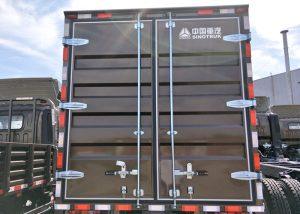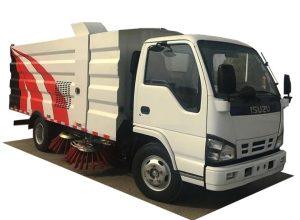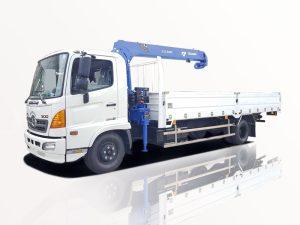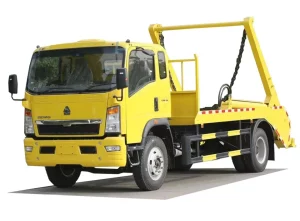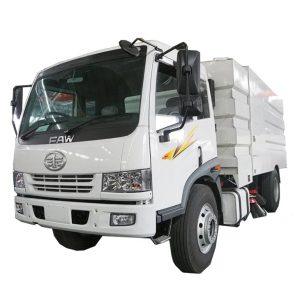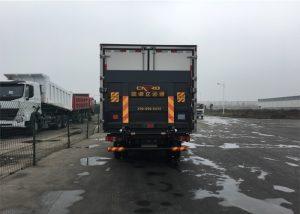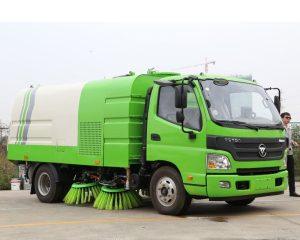Monday to Saturday - 8:00 -17:30
Freezer Truck for Sale: Your Comprehensive Guide
Introduction
When it comes to transporting perishable goods, having the right equipment is crucial for success. A freezer truck not only ensures that your products remain at the required temperatures, but it also offers efficiency and reliability for your business operations. This article will explore everything you need to know about freezer trucks for sale, including types, features, benefits, cost considerations, and essential tips for selecting the best freezer truck for your needs. By the end of this guide, you’ll have a clear understanding of how to make an informed decision when purchasing a freezer truck.
What is a Freezer Truck?
A freezer truck is a specialized vehicle designed to transport goods that require refrigeration during transit. These trucks are equipped with refrigeration units that maintain a low temperature within the cargo area, allowing businesses in industries such as food services, pharmaceuticals, and logistics to deliver temperature-sensitive products safely.
Types of Freezer Trucks
Freezer trucks come in various sizes and configurations, suitable for different types of businesses. Here are the main types:
1. Box Trucks
These trucks are commonly used for local deliveries, featuring a rectangular cargo area insulated to keep temperatures low.
2. Trailer Trucks
Perfect for long-haul transport, trailer trucks can carry larger quantities, making them ideal for wholesalers and distributors.
3. Vans
Smaller than box or trailer trucks, freezer vans are suitable for urban deliveries, particularly for catering services or small food businesses.
Features of Freezer Trucks
When looking for a freezer truck for sale, consider the following essential features:
1. Insulation
High-quality insulation is crucial to maintain the desired temperature inside the cargo area.
2. Refrigeration Unit
Choose a truck with a reliable refrigeration unit that meets your temperature requirements, typically ranging from -10°F to 32°F.
3. Payload Capacity
Ensure the truck can carry the volume and weight of your goods while allowing for regulatory compliance.
4. Temperature Monitoring
A built-in temperature monitoring system helps provide real-time data on the cargo’s climate, ensuring food safety.
5. GPS Tracking
GPS technology enables efficient route management and aids in tracking the vehicle’s location during transit.
Benefits of Owning a Freezer Truck
Investing in a freezer truck brings several advantages to any business focused on refrigerated goods.
1. Enhanced Food Safety
Maintaining the correct temperature during transport minimizes the risk of spoilage, ensuring product safety.
2. Increased Operational Efficiency
Having your own freezer truck allows businesses to control their logistics, leading to faster delivery times and reduced dependency on third-party services.
3. Cost Savings
Owning a freezer truck can lead to long-term savings by reducing transportation costs associated with hiring third-party logistics providers.
4. Brand Representation
Having a branded freezer truck can serve as mobile advertising, helping to enhance your brand’s visibility in the market.
Finding the Right Freezer Truck for Sale
Purchasing a freezer truck is a significant investment, and it’s essential to choose wisely. Here’s how you can find the best options.
1. Determine Your Needs
Identify your business requirements, including size, capacity, and the specific temperature range needed for your products. This will help narrow down your options.
2. New vs. Used Freezer Trucks
Deciding whether to buy new or used can impact your budget significantly. New trucks are more reliable and often come with warranties, while used trucks can offer cost savings but may require additional maintenance.
3. Research Reliable Sellers
Look for reputable dealerships or manufacturers. Read reviews and gather recommendations from other businesses or industry associations.
4. Inspections and Test Drives
Always inspect used trucks for signs of wear and tear. Test driving the vehicle can provide insight into its performance and handling.
5. Evaluate Financing Options
Explore financing options such as loans or leases that can make purchasing a freezer truck more manageable.
Cost Considerations
The cost of freezer trucks can vary significantly based on their size, features, and whether they are new or used. Here’s a breakdown:
1. Price Range for Different Types
| Type of Truck | Price Range |
|---|---|
| Box Truck | $20,000 – $60,000 |
| Trailer Truck | $50,000 – $100,000 |
| Van | $15,000 – $40,000 |
2. Maintenance and Operating Costs
In addition to the initial purchase price, consider ongoing costs such as maintenance, insurance, and fuel. Regular maintenance is crucial to keep the refrigeration unit and mechanical systems functioning well.
3. Budgeting for Customizations
Depending on your business needs, you might consider customizing your freezer truck. This could involve adding shelving, temperature monitoring systems, or branded vinyl wraps.
Practical Examples of Freezer Truck Uses
Freezer trucks serve various industries, providing critical temperature-controlled transport for many products. Here are a few practical examples:
1. Food Distribution
Grocery stores and restaurants require freezer trucks to transport frozen meats, seafood, and prepared meals to ensure freshness upon arrival.
2. Pharmaceutical Delivery
Pharmaceutical companies use freezer trucks to distribute temperature-sensitive medications that require strict temperature controls during transit.
3. Floral Deliveries
Florists use freezer trucks to maintain the quality of flowers and plants that are sensitive to temperature changes.
4. Ice Cream and Dessert Transportation
Ice cream distributors rely on freezer trucks to keep their products frozen during transportation to retailers or while catering events.
Tips for Maintaining Your Freezer Truck
Proper maintenance is essential to ensure the longevity and efficiency of your freezer truck. Here are some tips:
1. Regular Inspections
Schedule routine inspections of the refrigeration unit, insulation, and tires to catch any potential issues before they worsen.
2. Clean the Truck
Keep the truck clean to avoid any contamination of your products. This includes washing the exterior and thoroughly cleaning the cargo area.
3. Monitor Refrigeration Performance
Regularly check the refrigeration unit’s performance to ensure it is maintaining the correct temperature.
4. Keep Documentation
Maintain records of all maintenance work, as this can help assess performance over time and is often required for insurance purposes.
Frequently Asked Questions (FAQ)
1. How do I know if a used freezer truck is in good condition?
Inspect the truck for signs of wear, check the refrigeration unit’s performance, and ask for maintenance history and records.
2. What is the average lifespan of a freezer truck?
The average lifespan of a freezer truck ranges from 10 to 15 years, depending on usage, maintenance, and care.
3. Can I rent a freezer truck instead of buying one?
Yes, many companies offer freezer truck rentals, which can be a good option for short-term needs or seasonal demand fluctuations.
4. Are there specific regulations for operating freezer trucks?
Yes, regulations vary by region but often include temperature monitoring requirements, driver qualifications, and proper cargo handling procedures to ensure safety and compliance.
5. What temperatures can freezer trucks maintain?
Freezer trucks can typically maintain temperatures ranging from -10°F to 32°F, depending on the refrigeration unit and insulation quality.
6. How can I finance a freezer truck purchase?
Consider options like traditional bank loans, specialized equipment financing companies, or leasing agreements, which can spread out the costs over time.


